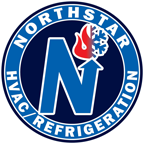The Importance of Air Filters in HVAC Systems: A Guide to Cleaner Air and Better Efficiency
Written by Ed Rice
Air filters are a small but vital component of any HVAC system, playing a crucial role in ensuring the system operates efficiently and maintaining a healthy indoor environment. However, many home and business owners overlook the importance of regularly changing air filters, leading to decreased performance, higher energy costs, and potential health concerns. In this post, we’ll explore why air filters matter, the benefits of maintaining them, and how to choose and care for the right filter for your system.
Why Are Air Filters Important?
Air filters are the first line of defense for your HVAC system. They trap dust, dirt, allergens, and other particles from the air before it enters the system. By doing so, they:
Protect Equipment: Prevent debris from accumulating on critical components like coils, fans, and motors, reducing wear and tear.
Enhance Efficiency: Allow air to flow freely through the system, ensuring optimal performance and energy efficiency.
Improve Air Quality: Filter out pollutants, allergens, and odors, creating a healthier indoor environment for occupants.
Benefits of Changing Your Air Filters
Improved Indoor Air Quality
High-quality air filters capture common pollutants such as dust, pollen, mold spores, and pet dander. This is especially important for those with allergies or respiratory conditions.
Regularly replacing filters also helps reduce odors caused by cooking, pets, or smoke.
Energy Efficiency and Cost Savings
A clogged air filter restricts airflow, forcing your HVAC system to work harder and consume more energy. Clean filters ensure smooth operation, keeping energy bills in check.
Preventing system strain also minimizes the likelihood of costly repairs caused by overheating or component failure.
Extended Equipment Lifespan
Regular maintenance, including filter changes, reduces wear on your HVAC system, potentially adding years to its operational life.
Choosing the Right Air Filter
When selecting an air filter, it’s essential to balance filtration effectiveness and system compatibility. Here are some key considerations:
MERV Ratings
The Minimum Efficiency Reporting Value (MERV) indicates a filter's ability to trap particles. Ratings range from 1 to 16:
1–4: Basic filtration (dust, lint).
5–8: Moderate filtration (mold spores, pet dander).
9–12: High filtration (fine dust, smoke).
13–16: Superior filtration (bacteria, allergens).
Higher ratings offer better filtration but may restrict airflow in some systems. Consult your HVAC technician to determine the ideal MERV rating for your system.
2. Filter Types
Fiberglass Filters: Affordable but less effective at capturing smaller particles.
Pleated Filters: Better at trapping allergens and dust; a popular choice for homes and businesses.
HEPA Filters: Capture 99.97% of particles 0.3 microns or larger; ideal for environments requiring superior air quality, such as hospitals or laboratories.
When and How Often Should You Change Your Air Filter?
The frequency of air filter changes depends on several factors:
General Guidelines: Replace standard filters every 30–90 days.
Special Circumstances:
Homes with pets may require changes every 30 days.
Allergy sufferers or households in polluted areas may benefit from more frequent changes.
Commercial spaces with high occupancy or heavy HVAC usage may require regular inspections and replacements.
Signs It’s Time to Replace Your Filter
Noticeable dust buildup around vents or on surfaces.
Reduced airflow from HVAC vents.
A spike in energy bills.
Worsening allergy symptoms indoors.
Unusual odors when the system is running.
Air Filters as Part of Preventative Maintenance
Regularly replacing air filters is a simple yet essential part of preventative HVAC maintenance. Including filter changes in a routine maintenance schedule ensures your system operates efficiently and reduces the likelihood of unexpected breakdowns.
How Northstar Refrigeration Can Help
At Northstar Refrigeration, we’re committed to keeping your HVAC system running smoothly year-round. Here’s how we can help:
Maintenance Plans: We offer preventative maintenance programs tailored to your system, ensuring air filters are inspected and replaced on schedule.
Expert Guidance: Our technicians can recommend the best air filters for your specific system and environmental needs.
24/7 Support: With Northstar’s emergency services, you can rest assured your HVAC system will be back to optimal performance in no time.
Take Control of Your HVAC System Today
Don’t underestimate the impact of a clean air filter on your HVAC system’s performance and your indoor air quality. Regular maintenance is the key to lower energy bills, better air quality, and a longer-lasting system.
Contact Northstar Refrigeration today at (508) 888-3692 to schedule your HVAC maintenance or learn more about how we can help you achieve cleaner, healthier air.
(508) 888-3692
www.northstarhvacr.com
Edward Rice
Director of Marketing,
Northstar Refrigeration, Inc.
95 Camelot Drive, Unit 1,
Plymouth, MA 02360
erice@northstarhvacr.com www.northstarhvacr.com
p: (508) 888-3692 x115
m: (508) 561-8638



